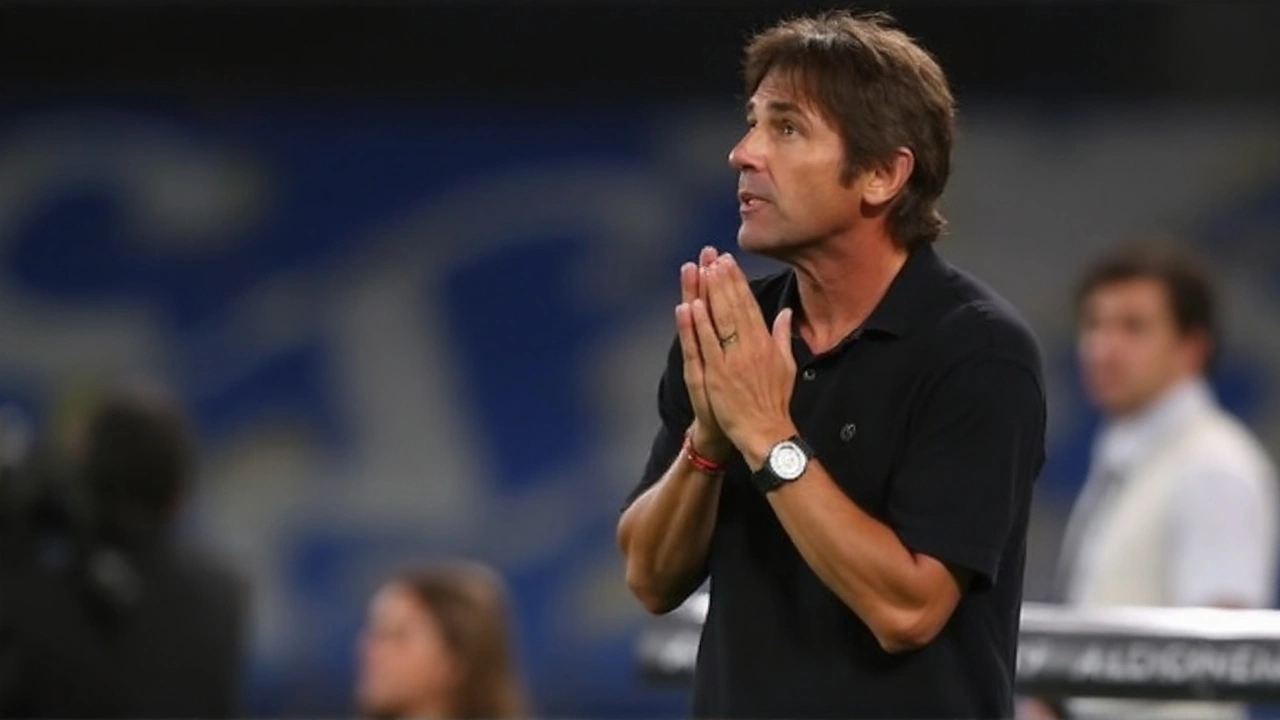
A stoppage-time twist in Naples
Five minutes into stoppage time and the champions still couldn’t find a way through. Then Alessandro Buongiorno stepped up, bent in a measured ball, and Frank Anguissa slid it home to flip frustration into euphoria in an instant. The Maradona erupted, and Napoli escaped with a 1-0 win that felt less like a routine early-season result and more like a stress test passed under pressure.
This was no cruise. Cagliari arrived with a clear plan, sat deep, and turned every passing lane into a traffic jam. Napoli, loaded with new star power and expectation, spent long stretches pushing without prying the door open. That late winner did more than settle the score—it underlined why title defenses are built as much on stubbornness as sparkle.
The night carried an extra edge because of who was on the pitch. Kevin De Bruyne and Scott McTominay, recent arrivals, started alongside steady hands like Matteo Politano and Stanislav Lobotka. The anticipation was obvious from the first whistle and only grew as the minutes ticked by without a breakthrough. When Anguissa finally converted at 90+5, the release was total.
The champions now have six points from six to start their Serie A campaign, and they earned every bit of it. Not all wins are equal. Some are statements of style; this was a statement of mentality.
Napoli vs Cagliari served up a classic early-season lesson: when the slick moves stall, resilience wins the day.
Tactics, performances, and what it means
Napoli’s structure looked familiar—fluid 4-3-3 patterns with Lobotka keeping the rhythm, De Bruyne drifting into pockets to guide attacks, and McTominay adding legs and muscle through the middle. The fullbacks pushed high to stretch the pitch, but Cagliari’s compact shape kept the central zone clogged. Every forward pass seemed to bounce off another red-and-blue shirt.
In the first half, the hosts tried to draw the block out with patient circulation. Politano popped up in half-spaces to receive on the turn and test the back line. De Bruyne aimed diagonal switches to widen the pitch. Cagliari’s answer was a calm, layered block—cleverly shaded to deny the killer pass—and a willingness to live without the ball.
After the break, Napoli’s tempo lifted. McTominay’s driving runs dragged markers out of sync, and second balls started to fall more kindly. Yet Cagliari’s goalkeeper stayed busy and solid, handling low shots and crosses without fuss. Set pieces looked like Napoli’s best bet until Buongiorno changed the picture from open play with that late, whipped delivery to the near post.
The goal itself came from persistence and positioning. Buongiorno picked the right moment to join, took one steady touch, and sent a cross with bite into a crowded area. Anguissa timed his movement, arriving between defenders to guide the chance over the line. It wasn’t flashy, but it was clean and decisive—exactly the kind of action that decides tight games.
De Bruyne’s debut carried flashes of what’s to come. He dropped between the lines, drew two and sometimes three defenders, and kept the ball moving with quick angles. The final killer ball didn’t land, but the gravity he creates already changes how opponents defend Napoli. McTominay, meanwhile, gave the midfield a different flavor—more vertical, more direct, and helpful when the game needed sustained pressure near the box.
Lobotka was the metronome. He held his position, recycled possession, and made sure panic never set in. Buongiorno’s late assist will grab headlines, but his defensive work mattered just as much: strong in duels, tidy covering space behind the advancing fullbacks, and brave when stepping out to keep Cagliari penned in.
As for Cagliari, take a bow. They stayed disciplined for more than 90 minutes, kept the box crowded, and forced Napoli into wide routes again and again. Their central defenders blocked and cleared with conviction, and the keeper didn’t blink under a stream of corners and cutbacks. For a side facing the reigning champions in their home opener, that’s a performance to build on.
Numbers aside, the flow told the story. Napoli had the territory and momentum; Cagliari had shape and stubbornness. Chances came late and under pressure. That’s often how these matches go: one mistake, one switch left open, one runner not tracked. Anguissa took advantage of the only window that truly opened.
There’s also the human element. The longer a top team fails to score, the heavier the ball feels. The Maradona crowd kept urging, but tension lived in every touch. Credit to Calogero Conte’s sideline management. He didn’t abandon the plan or split the team chasing a chaotic finish. Patience, not panic, produced the winner.
The result keeps Napoli perfect to start their title defense. That matters. Early points don’t just pad the table; they steady the mood. They buy time for new signings to settle, for automatisms to form, and for a manager to test combinations without inviting a crisis headline.
It also says something about identity. Last season’s champions can’t rely only on their high points. Opponents study, adjust, and double down on low-block strategies. Winning ugly is a skill. Grinding through a game like this—where the rhythm sputters and the opponent refuses to break—is exactly how titles are defended across 38 rounds.
On the tactical board, expect refinements. De Bruyne will likely get even more freedom between lines as chemistry grows, with McTominay’s engine covering transitions and Lobotka orchestrating the base. Wide rotations can quicken, especially when the fullbacks and wingers find cleaner timing on underlaps. Against deeper blocks, earlier crosses like Buongiorno’s can force different kinds of defending, opening rebounds and second phases.
For Cagliari, the blueprint is clear: keep that defensive structure, sharpen the counters, and look for cleaner exits after the first regain. They frustrated one of the league’s best attacks for more than 90 minutes. With better outlets in transition, nights like this could turn from gallant defeats into gritty draws—or better.
Zooming out, the timing of the win matters with a busy stretch ahead. The calendar will soon stack league play with European commitments and domestic cups. Managing legs without losing tempo is the next puzzle. Performances like this show the squad’s mix—power, craft, and patience—can carry them through tight turnarounds.
And then there’s the psychological edge. Stealing victory at the death imprints belief. It tells the dressing room they can bend a match to their will, even when it looks stubborn and grey. That belief is contagious. It spreads to the bench, the staff, and the stands. It’s what separates a good start from a determined campaign.
- Anguissa’s stoppage-time finish turned a tense night into three points.
- Buongiorno’s delivery showed why early crosses can break low blocks.
- De Bruyne offered craft and gravity, even without the final assist.
- McTominay added vertical thrust and second-ball pressure through midfield.
- Cagliari’s disciplined block is a credible template against top sides.
In the end, the scoreboard reads 1-0. The story is richer than that. It’s about a champion finding a way, a new-look midfield starting to mesh, and a visiting side that made every yard expensive. Nights like these won’t make the highlight reels for flair, but they tell you everything about where a season might be headed.
The roar that followed Anguissa’s finish said it all. Relief, joy, and a hint of promise for what’s coming next in Naples.
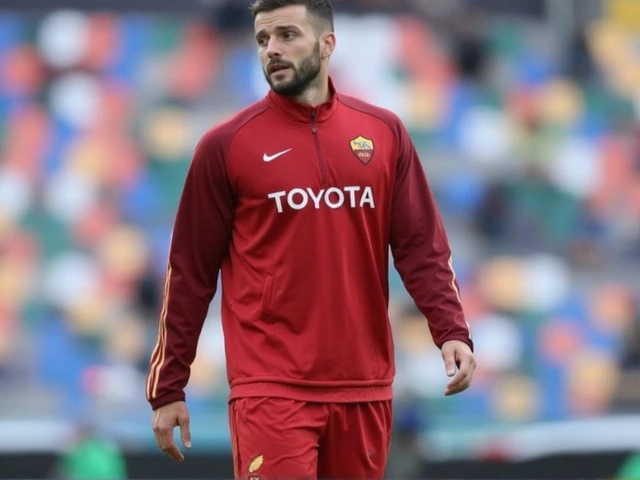
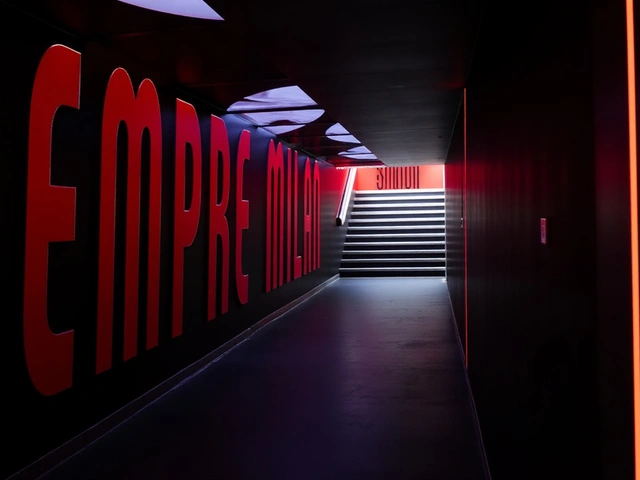

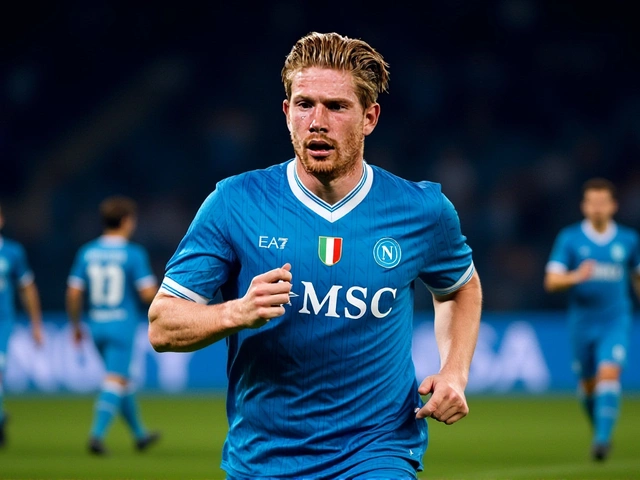
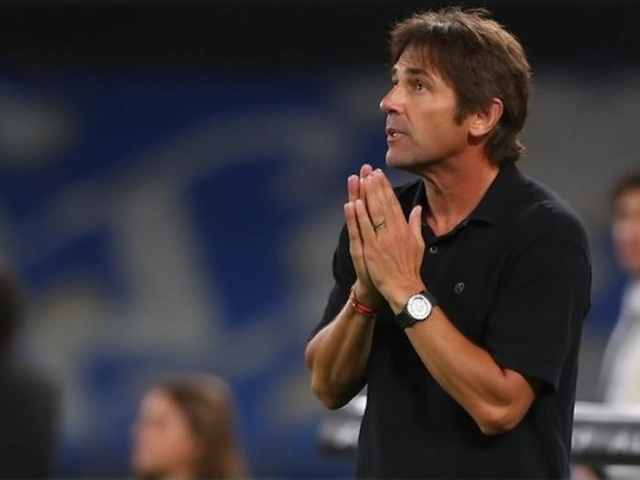
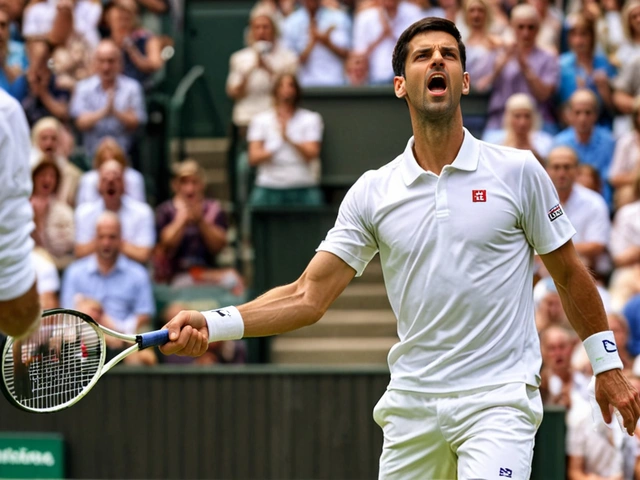
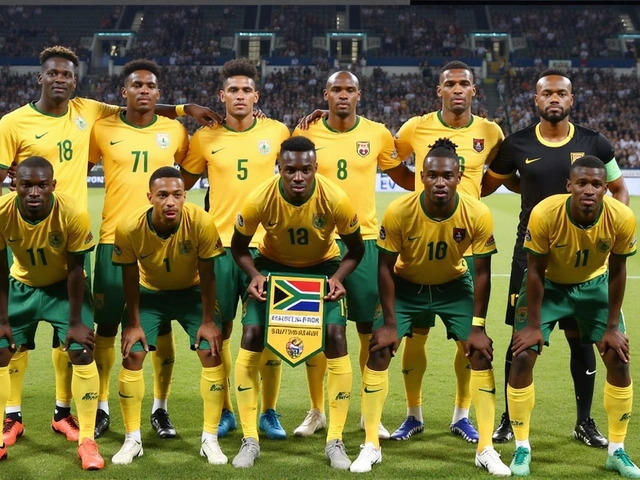

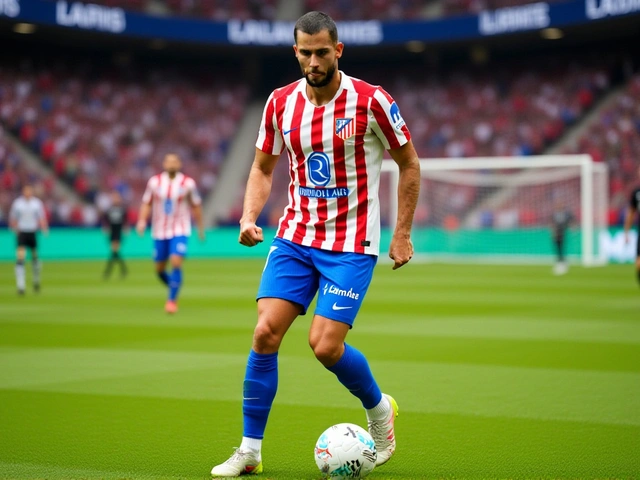
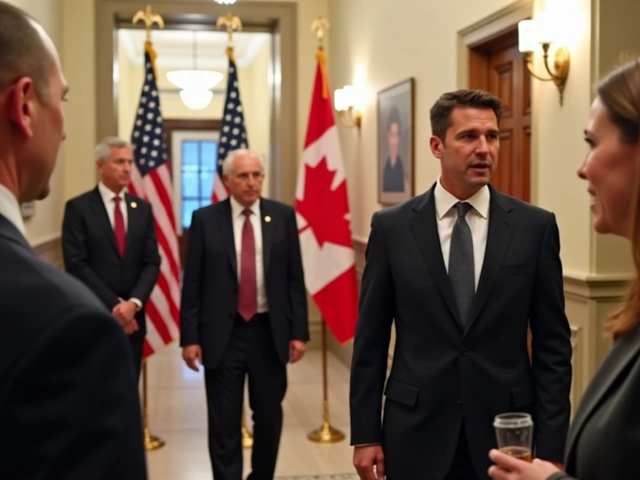
What a 🔥 finish! Anguissa just turned the night into pure fireworks!!! 🎆
Oh, another last‑minute miracle, because apparently Napoli can’t score in regular time. Maybe they’re saving their best moves for the drama of the stoppage clock. Anyway, the win keeps the perfect start intact.
The tension in the San Paolo was palpable from the kickoff.
Every pass felt like a needle prick, each failed chance a collective sigh.
Napoli's midfield shuffled the ball with the finesse of a well‑rehearsed orchestra, yet the Italian side's defense was a brick wall.
De Bruyne’s elegance was on display, but the final product never materialized.
Cagliari’s disciplined low block forced the visitors to stretch wide, creating awkward angles.
Lobotka kept the rhythm, but even his metronome could not break the opposition’s resolve.
The crowd’s chants grew louder, as if trying to summon a goal from the ether.
When the 90‑plus minutes ticked away, the pressure turned into sheer frustration.
Then, out of nowhere, Buongiorno slipped a perfect cross into the danger zone.
Anguissa’s movement was textbook, arriving on time and side.
He slotted the ball home with a calmness that belied the chaos around him.
The stadium erupted, and the relief was almost tangible.
This moment underlines why mental fortitude matters as much as technical skill.
A team that can sit on a pass, wait for a lapse, and finish it decisively deserves the points.
Napoli’s perfect start now rests not only on flair, but on that gritty, last‑gasp composure.
Honestly, I was on the edge of my seat the whole time-never thought a simple cross could flip the script so dramatically.
Nice spot from Anguissa, but the build‑up was a bit sluggish for my taste.
That late winner really shows Napoli’s depth; the new midfielders are already clicking, and the squad feels balanced.
Keeping that composure in the dying minutes is a big sign for the season ahead.
Totally agree! The tactical shift to early‑crosses against deep blocks is a smart move-creates second‑phase opportunities and forces the defense to rethink.
With that mindset, Napoli can stay unpredictable and keep opponents guessing.
Cagliari’s defensive tactics were respectable, but settling for a loss is not an excuse.